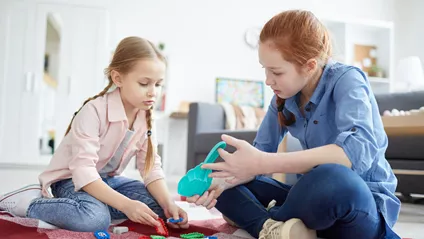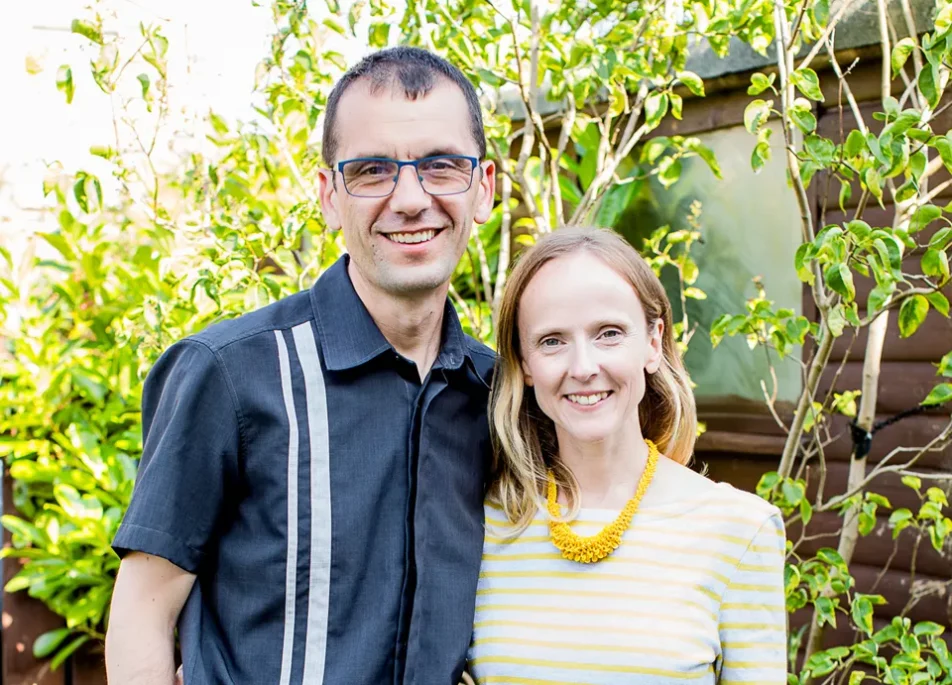
The Skills to Foster: Have you got what it takes?
You Have the Skills to Foster
Whether you’re suffering career burnout or you have enjoyed a successful career and are looking into starting something new, challenging, and rewarding, then fostering children could be just what you are looking for.
Despite popular belief, you don’t need to be a parent, or even have experience in childcare to become a foster parent. There are so many jobs that provide the abilities and transferable skills for fostering, without being childcare specific.
We need you more than ever
Now, more than ever, we need caring and compassionate people to open their homes to vulnerable children. Foster care during the pandemic showed that the number of children needing foster homes rose by 44% during coronavirus, while the number of people enquiring to become foster carers dropped by nearly half compared to before the pandemic.
This number still hasn’t fully recovered, so there has never been a better or more important time to care for vulnerable children.
As fostering is a career, it’s important to us that our carers are rewarded for their hard work and dedication to changing children’s and young people’s lives. This is why we offer generous fostering allowances and rewards, so you can not only earn a competitive salary but use your allowances to further support and enhance your foster child’s life.

A rewarding new career path
There are times in our lives when we want to branch out and try something new. When the career path you have chosen starts to feel a little stale, then it could be the time to change things up.
Fostering vulnerable children in care changes lives – both for the children and the foster parents Opening your heart and home to a child in need can be one of the most amazing things you ever do. And the best part is you don’t even need childcare experience to be a foster parent. In fact, you probably already have the foster skills you need without realising it.
Jobs that provide relevant fostering experience
Many jobs will equip you with skills that can be used to successfully support and care for vulnerable children. They are what are known as transferable skills.
Some examples of the types of jobs that can provide excellent transferable skills include:
- Police officer
- Teacher or TA
- Nurse
- Nursery practitioner
- Prison officer
- Carer
- Caring assistant
- Residential care worker
- Volunteer for children’s groups
- Volunteer for nurseries
- Childminder
- Social worker
If you have worked in any of these fields, or indeed anything similar, you will likely be able to demonstrate that you have transferable skills to be suitable for the different types of foster placements needed.
Even if you don’t have experience in these fields, don’t worry. It won’t prevent you from being accepted as a foster parent It’s likely that you would have gained the skills and attributes you need to demonstrate from your current job role, as well as general life experience.

What are transferable skills?
If you’re considering a career in fostering but are unsure if you have the relevant foster carer skills or abilities, then rest assured. There are many job roles that provide you with relevant transferable job skills to become a foster parent, and the career you already have has most likely provided you with some, if not all, of these.
Some of these skills might come naturally, while others can be picked up during your foster training. And we’re here to help with anything that might be worrying you.
So, what are some examples of transferable skills? Let’s take a look:
- Energy to keep up with the needs of children
- Empathy
- Great listening skills
- Being flexible and able to adapt to change
- Ability to build relationships with others
- Understanding
- Patience
- Cooperation
- A caring heart
- Ability to show genuine love
- Being able to remain calm
- Being an excellent communicator
- Resilience
- Able to have fun
- A good sense of humour
- Being open-minded
- Compassion
- Being emotionally available
Having the ability to work as part of a team is crucial, as, when you foster, you’ll be working with your fostering agency as well as a team of education specialists and social workers. Teamwork is a great transferable skill that comes from many careers, so this experience will assist you greatly if you make the choice to become a foster carer.
In fact, you’ll be surprised how everyday experiences in your career and the life skills you’ve picked up have equipped you with the transferable skills (like those listed above) that’ll make you a brilliant foster carer.
Skills needed to be a foster carer
While having previous experience working with children can put you at an advantage, it is by no means essential when it comes to the skills needed for fostering.
The characteristics of a successful foster carer come from within. At FCA, we’re passionate about enhancing and embracing the lives of the children in our care, and it’s important that our prospective carers feel the same way.
If you are a parent, then you most likely already have the knowledge and understanding that can be transferred into foster care. Of course, you don’t need to be a parent to be a successful carer, and when you work with us, you’ll receive thorough foster training throughout your new career to support you and teach you the fostering skills levels needed to flourish.
Empathy is key
Why is empathy important when it comes to fostering?
Children in care have often lacked stability in their lives. They might have come from an abusive or unstable home, or they might have experienced trauma and this can cause them to be guarded or quiet, especially when they first come to live with you. Remember, your foster child didn’t choose to live a life in foster care, and showing empathy and compassion can help make things a bit easier.

It can be tough for a child in care to trust a new person straight away. And the best way to help bring them out of their shell is by showing empathy; reminding them that you understand where they’re coming from and are there to support them every step of the way.
Being empathetic can be shown by doing your research and making an effort to learn as much as you can about your foster child’s background and experiences. This will help you put yourself in their shoes, helping to have a better understanding of how difficult this situation must be for them.
It’s also important to give them space and let them have privacy in their new home. They’ll need time to adjust and giving them that space can help them adjust to their new foster home.
Remember to always respond with kindness above all else. Use your active listening skills even if your foster child tests your boundaries.

Training
We are committed to providing high-quality training that is accessible and relevant to all of our foster parents.

24/7 Support
When you join us, you’ll be joining our community with access to one of the greatest fostering support packages out there! You really are never on your own because at FCA we really are family.

Finances and allowances
Our foster parents deserve to be rewarded for their hard work. That’s why we offer generous and competitive fostering allowances and payments.
Frequently asked questions
Fostering is providing a safe and stable family home for a child or young person who can’t live with their birth family. There are many reasons why children need foster care.
Anyone can apply to foster with us. We welcome foster carers from all walks of life; no matter what your gender, age, race or sexual orientation. We do have criteria though:
- You need a spare room
- You need to be over 21
- You ideally need to commit to fostering full time
- You need to have British Citizenship or indefinite leave to remain
Applying to become a foster parent involves a number of steps and starts when you contact us.
- Get in touch
We’ll have a chat to you talk to one of our friendly fostering advisors by calling 0800 023 4561 or filling in our enquiry form.
- We’ll visit you at home
We will arrange for one of our fostering advisors to visit you at home to talk to you in more detail and what to expect and how we will support you and find out a bit more about you.
- Start your application
If you decide you’d like to apply to foster with us, we’ll start you application process. The process involves filling in an application form and once accepted we will then undertake your fostering assessment.
- Fostering assessment
Following your application we’ll undertake a fostering assessment. Your assessing social worker will visit you and your family at home a number of times to speak to you and collect information about you and your life. It will help us to understand more about you. In addition you will attend a preparatory training course to help you learn more about fostering and how to handle different situations. The assessment process takes between four to six months.
- Meet the panel
Once your assessment is finished you will go to a fostering panel who will make their recommendation. The group is made up of people with fostering experience. Your social worker will help you prepare and be there for support. Read our blog about panel to help you understand.
Once approved the real fostering journey starts!
We believe in learning alongside peers and offer joint training sessions for both staff and foster parents to enable the sharing of best practice and experiences.
All of our training is mapped to regulations and national minimum standards and cross-referenced to the Training Support and Development Standards in England and the Induction Framework Outcomes in Wales.
Our training programme consists of:
Introduction to Fostering – All of our foster parents complete pre-approval training during their assessment.
Induction – We have an online induction course which looks at the key areas to equip foster parents with the necessary skills and confidence to take their first child or young person.
Mandatory training – Once approved, there is a comprehensive programme of ongoing training and development available; starting with mandatory courses that all foster parents will receive.
Complementary training – We have a wide range of courses available both online and face to face to develop foster parents offering a greater depth of knowledge, theory and practical application.
Learn more about our training and development for foster parents
Speak to our team
Whether you’re ready to start your journey or just want to chat to one of our friendly fostering advisors, get in touch with us today.
Enquiry Form
The company takes the requirements of GDPR seriously in ensuring the privacy and lawful processing of personal data provided to us by you. Please view our privacy notice which explains how the company will manage and use your personal data. This site is protected by reCAPTCHA and the Google Privacy Policy and Terms of Service apply.

